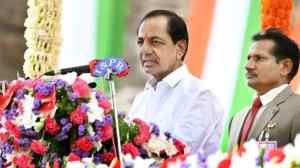Ex-Canada minister Ujjal Dosanjh: ‘Would Trudeau have practised same inaction if there was hate-mongering against Jews?’
Former BC Premier Ujjal Dosanjh says there could be a change in the Indo-Canadian ties once the trial of Hardeep Singh Nijjar’s assassins begins and evidence is tabled in public
 Ujjal Dosanjh, 78, the first and only Indian-born premier of British Columbia, said the current turmoil results from the Trudeau government’s inaction on violent statements and activities by separatists in Canada.
Ujjal Dosanjh, 78, the first and only Indian-born premier of British Columbia, said the current turmoil results from the Trudeau government’s inaction on violent statements and activities by separatists in Canada.A day after the violence outside the Brampton temple, Ujjal Dosanjh, 78, the first and only Indian-born premier of British Columbia, said the current turmoil results from the Trudeau government’s inaction on violent statements and activities by separatists in Canada. Dosanjh, the first Sikh attorney general of the province, has consistently condemned Khalistani activities despite narrowly escaping a violent attack in 1985, which shattered his hand and left him with 80 stitches in his head. Born to a small farmer in a village near Jalandhar, he migrated to Canada at 20 in the early 1960s and has witnessed various cycles of the Khalistan movement in the country.
As Canada faces clashes between pro-Khalistan and pro-India groups amid rising anti-immigrant sentiments, the former premier tells The Indian Express that these tensions have been a long time in the making.
IE: The clashes in Brampton have alarmed many. How did tensions escalate to this point?
Ujjal Dosanjh: These clashes have been a long time in the making. If you look back, they trace back to the years surrounding Operation Bluestar in 1984. Even before that, Khalistani elements were active abroad, backed by Pakistan’s ISI. The 1984 anti-Sikh pogrom angered even ordinary people, and what began as a fringe movement gained power. There were tensions within the Indian diaspora here after the Air India Kanishka bombing in 1985.
But over time, this distrust subsided, and we experienced a period of relative peace until Justin Trudeau became prime minister in 2015. Since then, Khalistani elements have gained momentum. By ignoring a handful of hate-mongers and failing to act against those misusing places of worship to spread venom against India, the Trudeau government ended up emboldening them. It’s more a sin of omission than commission.
IE: The Trudeau government often defends its inaction with Canadians’ freedoms, including freedom of expression and dissent.
Ujjal Dosanjh: Freedom of speech doesn’t extend to organising violent attacks on dissenters or raising funds to destabilise a friendly country. This isn’t about free expression; it’s about stopping hate-fuelled violence. Canadian authorities have overlooked these limits, allowing moderates to be targeted without consequences. Freedom exists, yes, but not to incite violence.
Would they have practised the same inaction if there were hate-mongering against Jews? I’m certain there would have been swift action and consequences.
IE: Beyond inaction, how has Canada’s political environment influenced the growth of the Khalistani movement?
Ujjal Dosanjh: The former Conservative Prime Minister Stephen Harper frequently said he was “committed” to India’s territorial integrity, occasionally rebuking pro-Khalistan elements. But under Trudeau, the language shifted; he began to say he “respected” India’s territorial integrity.
Additionally, when Trudeau took office, some figures with Khalistani sympathies found a place in his cabinet. This gave them a platform, and even diplomatic protocols were manipulated. For instance, Canada’s Foreign Affairs Ministry declared Capt Amarinder Singh, then leader of the Opposition in Punjab, unwelcome in Canada—a clear signal of influence. Later, a report from Canada’s intelligence agency, CSIS, on Khalistani extremism had all references removed. This shift encouraged Khalistani groups to grow.
Trudeau also opened the immigration floodgates, making Indians the largest group of students coming to Canada. Some of these students and immigrants, struggling with basic needs and fees, became easy targets for separatists. Many realised that seeking refugee status could make it easier to stay, so they aligned with certain agendas.
IE: A Canadian columnist mentioned that Sikhs are now co-opted as Khalistanis. Is that accurate?
Ujjal Dosanjh: That may be the perception, but it’s not true. Khalistanis are a fringe minority with loud voices. The majority of Sikhs come to Canada for a better life and stay silent; they don’t want trouble. They don’t engage in identity politics, let alone join a separatist movement.
At any Baisakhi parade here, if there are 50,000 people, fewer than a thousand might have separatist leanings. Yet this vocal minority ends up representing the community by default, which has led to figures like Hardeep Singh Nijjar being celebrated in Canada’s House of Commons.
IE: There are reports of confrontations between pro-Khalistan and pro-India groups. Do you see a Hindu-Sikh divide within the Indian community?
Ujjal Dosanjh: There’s no real divide between the broader Sikh and Hindu communities here, though incidents in Brampton and Surrey have led to physical altercations and even arrests.
During the Brampton temple clash, a large number of Sikh senior citizens were in the temple basement, waiting for their life certificates.
My concern is that the ultimate aim may be to export these tensions back to Punjab in India, but they haven’t managed to drive a deep wedge between communities in Canada yet.
IE: There’s rising anti-immigrant sentiment in Canada. Is this tied to recent immigration policies?
Ujjal Dosanjh: Absolutely. Trudeau’s immigration policy has brought over a million people annually, straining resources like healthcare, housing, and education. This influx has frustrated many Canadians, as their children struggle to access schools and jobs. Foreign students, particularly, are criticised for not fully covering education costs, adding a financial strain and fuelling resentment.
Even though Indian students pay much higher tuition fees than Canadians, it still doesn’t cover the cost of education in Canada. So I don’t think Canada gains much.
IE: Indo-Canadian relations seem to be declining. What’s your outlook on these ties?
Ujjal Dosanjh: It’s difficult to foresee a quick resolution. Violence at Sikh temples in Canada has gone unaddressed, even though politicians condemned the Brampton incident without mentioning pro-Khalistan elements. The Indian government expects Canada to address these issues, particularly regarding figures like Sikhs for Justice leader Gurpatwant Singh Pannu.
The Indian government too needs to address questions around Nijjar’s assassination. There is no room for transnational aggression in democracies.
For relations to improve, Canada and India must address each other’s concerns openly and work as equal partners. Canada resents that India heeded the US revelation on bid to assassinate Pannu but not ours, though President Joe Biden didn’t first raise the issue in Congress as Trudeau did.
I heard a former Indian intelligence chief say that once the Pannu issue is resolved, we might see an improvement in Indo-Canadian ties.
Canada already has four individuals charged with assassination. As the trial proceeds, tensions may subside. Having been an attorney general, I know our system doesn’t manufacture evidence.
Any evidence will be public, which might help resolve some issues.
Both governments should reconsider their approach. With over two million Canadians of Indian origin, we need consular services here and in Delhi. Neither side is blameless in this mess.
IE: What drives the Khalistani movement among the diaspora in Canada?
Ujjal Dosanjh: Many supporters are first-generation immigrants seeking a sense of identity. Khalistan offers them a cause, even if it’s disconnected from Canadian or Indian reality. It’s a mindset, not grounded in geography. Movements from abroad, however, won’t succeed in dismembering India.












